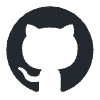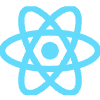Mastering the Interview: Key Questions to Ask Freelance Web Developers

Mastering the Interview: Key Questions to Ask Freelance Web Developers
Preparing for the Interview
Review Their Portfolio and Application
Define Your Must-Have vs. Nice-to-Have Skills
Questions to Assess Technical Skills and Experience
Project Walkthroughs
Specific Technology Questions
Problem-Solving Scenarios
Questions about Web Performance and Optimization
Understanding of Security Best Practices
Questions to Evaluate Process and Working Style
Their Development Process
Communication and Collaboration
Time Management and Deadlines
Handling Feedback and Revisions
Questions to Gauge Soft Skills and Professionalism
Dealing with Difficult Clients or Challenges
Explaining Technical Concepts to Non-Technical People
Staying Updated with Web Technologies
Their Questions for You
Red Flags to Watch Out For During the Interview
Vague Answers or Lack of Specific Examples
Poor Communication Skills
Over-Promising or Unrealistic Claims
Conclusion: Making an Informed Hiring Decision
References
Mastering the Interview: Key Questions to Ask Freelance Web Developers
Preparing for the Interview
Review Their Portfolio and Application
Define Your Must-Have vs. Nice-to-Have Skills
Questions to Assess Technical Skills and Experience
Project Walkthroughs
Specific Technology Questions
Problem-Solving Scenarios
Questions about Web Performance and Optimization
Understanding of Security Best Practices
Questions to Evaluate Process and Working Style
Their Development Process
Communication and Collaboration
Time Management and Deadlines
Handling Feedback and Revisions
Questions to Gauge Soft Skills and Professionalism
Dealing with Difficult Clients or Challenges
Explaining Technical Concepts to Non-Technical People
Staying Updated with Web Technologies
Their Questions for You
Red Flags to Watch Out For During the Interview
Vague Answers or Lack of Specific Examples
Poor Communication Skills
Over-Promising or Unrealistic Claims
Conclusion: Making an Informed Hiring Decision
References
Posted Jun 12, 2025
Ensure you hire the best freelance web developer by asking the right questions. Discover key interview questions covering skills, experience, and process.






